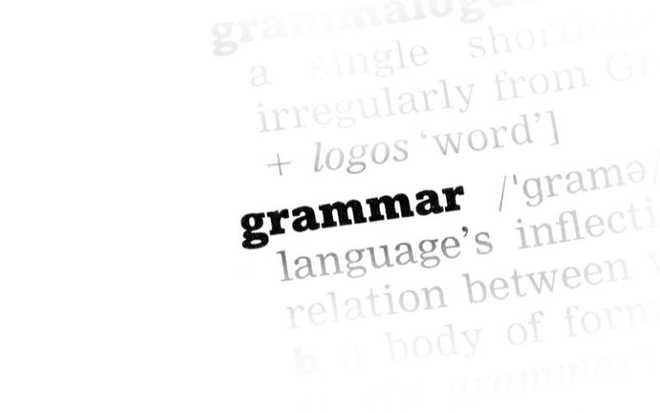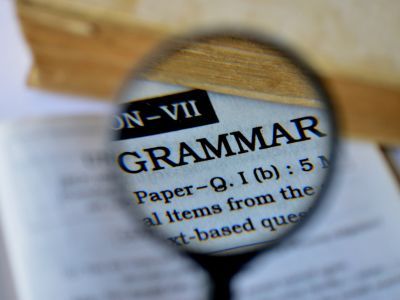Primary Grammar
Improve your child's grammar

Grammar is a very important skill for children to master at primary school level. Building English grammar knowledge will assist your child in the development of other reading and writing skills, such as spelling and punctuation, which together form a strong foundation that’ll set your young learner up for success.
This section of our website explains all you need to know about the grammar standards expected of primary school students through the different years, and how you can help your child develop them. Our guide includes lots of activities that will keep your child engaged and interested in working on their grammar skills, including practice tips from experts, free English worksheets, and suggestions on useful grammar lessons, quizzes, games, and challenges.
Keep reading for more information about primary grammar, or select your child’s year above to start learning!

What is primary grammar?
Grammar, at its most basic level, is a set of rules about the types of words we use and what they do. It also tells us how words work together in sentences.
Grammar can be overwhelming for children as there are many rules to learn, and they tend to come thick and fast. For example in Year1, children focus on learning the basics on common and proper nouns, verbs, sentence structure, capital letters, and tenses. In Year 2, children are expected to build on grammar skills acquired in their first primary school year, including their knowledge of superlative and comparative adjectives, and irregular verbs. At mid-primary level (Year 3 and Year 4), children start learning more complex grammar rules, including furthering their understanding of superlative adjectives, adverbs, conjunctions, pronouns, and parts of speech. Finally, as learners reach late primary school (Year 5 and Year 6), they’re expected to use all the grammar skills learned in previous years to build even more new knowledge. This includes how to correctly use prepositions, interjections, and more.
How do you teach primary grammar?
There are many ways to successfully teach primary grammar, but due to its intricate rules it can be a challenging area of English to teach on your own!

Our reading and writing program for kids includes thousands of primary grammar activities, which have been created by experts to boost your child’s skills in a fantastically fun way! It uses gamification to teach literacy, which ensures children remain engaged, focused, and entertained as they develop reading and writing skills. Night Zookeeper offers thousands of word games, grammar challenges, lessons on reading comprehension to explain context clues, printable worksheets for offline learning, and much more!
Night Zookeeper is a fully adjustable education program, which means that you can adapt the content your child has access to based on their year group, age, or current learning ability! You can also decide the type of content your child has access to, to ensure that they get exactly what they need out of the program. For example, you can search for specific assignments that target grammar if you’d like your child to focus on that! For more information on the program features, please visit our user guide.
These features also help to make our program very inclusive and accessible for as many learners as possible. Night Zookeeper has been proven to work well for SEN schooling, including many success stories from children with dyslexia, dysgraphia, dyspraxia, ADHD, amongst many other special educational needs (SEN).
Related articles


Make Reading & Writing Fantastically Fun!
- Award-winning reading & writing program for kids
- Improves spelling, grammar, punctuation & vocabulary
- Over 1,000 different learning games and activities



